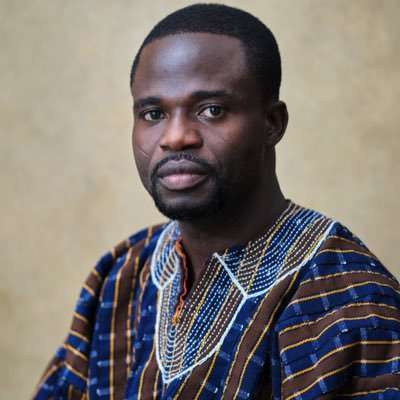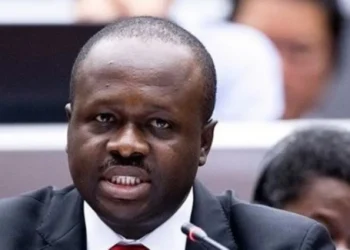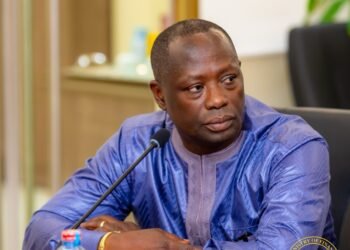In a pointed and thought-provoking commentary, Ghanaian investigative journalist Manasseh Azure Awuni has criticized the Ghana parliament as useless. He offered a sobering analysis of the state of Ghana’s institutions, drawing sharp contrasts with the United States to underscore the weaknesses in the country’s political framework.
Manasseh Azure observations highlight the critical need for stronger institutions that can function independently of the executive’s influence, ensuring a more accountable and stable governance structure.
Azure opens his critique by referencing former U.S. President Barack Obama’s statement about Africa’s need for “strong institutions, not strong men.”
He admits that while he initially misunderstood the depth of Obama’s message, his year-long stay in the United States allowed him to appreciate its significance.
“When President Obama came and said Africa needed a strong institution of strong men, I didn’t quite understand him until I lived in the US for close to a year.”
Manasseh Azure Awuni Ghanaian investigative journalist
Manasseh Azure further revealed the robustness of U.S. institutions, which can sustain governance even in the face of political instability.
In his view, the same cannot be said for Ghana, where the political system is heavily centralized around the presidency, leaving the country vulnerable to the whims of whoever occupies the office.
Azure underscored the disparity between the U.S. and Ghana by emphasizing the resilience of American institutions.
He argued that despite the perceived chaos in Washington, the U.S. system is designed to function effectively regardless of the president’s competence.
“In the US, they have their share of bad politics… But the institutions of states work. So if, let’s say, a toddler is put in the White House as president, America can still function because the institutions work.”
Manasseh Azure Awuni Ghanaian investigative journalist
Manasseh Azure emphasized the contrasts starkly with the situation in Ghana.
“Everything revolves around the president,” suggesting that the excessive concentration of power in the executive branch undermines the country’s democratic framework.
Manasseh Azure Highlighted the erosion of institutional integrity under the current Ghanaian government. He recounted how the administration used procedural lapses to justify the removal of the Electoral Commission chairperson, Charlotte Osei, citing failures to adhere to procurement laws.
However, Azure contended that the current government’s procurement practices have been far worse. “What I’ve experienced or seen in this government’s procurement has been worse than what they used to get Charlotte Osei out,” he noted. This double standard, according to Azure, highlighted the selective application of accountability mechanisms in Ghana.
The weakening of Ghana’s institutions extends beyond the Electoral Commission, as Azure pointed out, he expressed concern over the decline in public trust in the Auditor General’s office following the controversial removal of its head.
“Now the trust and the faith people have in the audit service has gone down, and we are getting evidence from international bodies that are downgrading our audit service.”
Manasseh Azure Awuni Ghanaian investigative journalist
Manasseh Azure pointed out that the loss of credibility not only damages the institution’s reputation but also diminishes its capacity to hold the government accountable for financial mismanagement.
The Ghana Judiciary and Executive
Azure’s most scathing critique reserved for the judiciary, which he described as being at its “lowest ebb.” He accused the judiciary of complicity in the executive’s misdeeds, citing rulings that he believes defy common sense and fail to uphold the rule of law.
Manasseh Azure argued on a broader problem within Ghana’s political system, where the checks and balances designed to prevent abuse of power have been systematically undermined.
The dysfunction of Ghana’s institutions, according to Azure, is further exacerbated by a parliament that he described as totally condemned and useless. He referenced the criticisms of parliamentary figures like Joseph Osei-Owusu, the First Deputy Speaker, and Mohammed Muntaka Mubarak, the former Minority Chief Whip, to illustrate the legislature’s failure to effectively scrutinize the executive.
“If the executive led by the president is problematic, we have the legislature, parliament, which is supposed to scrutinize the executive, also embedded or co-opted by the executive.”
Manasseh Azure Awuni Ghanaian investigative journalist
Azure argued that the situation leaves the country without a functioning system of checks and balances, as the judiciary also fails to assert its independence on critical issues.
Manasseh Azure Awuni cautioned about the dangers of weakened institutions in Ghana. His reflections underscore the urgent need for reform to strengthen the country’s democratic framework, ensuring that its institutions can operate independently and effectively hold those in power accountable. Without such reforms.
READ ALSO: Oil Surplus Looms If OPEC+ Increases Supplies, IEA Data Shows



















